http://www.ravco.jp/cat/view.php?cat_id=5337
(1) 規則変化をする形容詞・副詞
英語の比較変化は、母音の数によって -er,-est をつけるか、more, most をつけるかが決まっています。以下はその規則です。
(注)音節(syllable)という語を使いますが、音節とは、「ひとまとまりで発音される単位で、母音を含む」ものです。例:children → chil・dren で2音節
c
[tʃíldrən]
名詞
[名]childの複数形
1-A) 1音節の語は、-er , -est を付けます
cheap - cheaper - cheapest
[tʃiːp]
形容詞
安い
fast - faster - fastest
hard - harder -hardest, etc
・-y で終わるものは, yを i に変えて -er, -est を付けます
dry - drier - driest
・-e で終わるものは、-er, -est だけを付けます
nice - nicer - nicest
・短母音(詰まる音)+ 子音字 で終わる語は、子音字を重ねて -er,-est を付けます
hot - hotter - hottest
big - biger - biggest
・real, right , wrong ,分詞形容詞 ( bored , pleased , surprised, etc ) は more / most を付けます
[ríːəl;ríəl]
形容詞
真の, 本物の
more real - most real
more surprised - most surprised
1-B) 2音節の語はほとんどが、more , most を付けます
slowly - more slowly - most slowly
useful - more useful - most useful
・2音節でも -y で終わるものは, yを i に変えて -er, -est を付けます
* happy - happier - happiest
・2音節でも -le, -ow, -er で終わるものは -er , -est を付けます
simple - simpler - simplest
narrow - narrower - narrowest
clever - cleverer - cleverest
1-C) 3音節の語は、more , most を付けます
beautiful - more beautiful - most beautiful
wonderful - more wonderful - most wonderful
(2) 不規則変化をする形容詞・副詞
good / well - better - best
bad / badly - worse - worst
many / much - more - most
little - less - least
old - older - oldest「年をとって」の意
old - elder - eldest“兄弟・姉妹”の「上の」の意
far - farther - farthest「(距離が)遠い」の意
far - further - furthest「(程度が)更なる」の意
late - later - latest「(時間が)遅い」の意
late - latter - last「(順番が)後の」の意
1.原級に-erを付けるものは、語尾が-y, -er, -le, -ow, -ure。
1) -y: busy*, early*, easy*, happy*, heavy*, hungry*, pretty*, sleepy*, sorry*, saltyなど。
2) -er: clever, sincereなど。
3) -le: simpleなど。3) 昔の文法書には noble なんかが載っていました。他に gentle など。
4) -ow: **4) narrow
5) -ure: **
5) mature
secure は more secure の方が普通。
2.more+原級にするものは、1以外。特に、-lyで終わるもの。
1) -ly: slowly, quicklyなど。
2) その他: usefulなど。
頻度の差はあれ、どちらでもいいものもある。
clever など、more clever としているネイティブの人が結構います。
2
2) -ful, -less, -ish, -ous のような接尾辞がついている場合は more ~となる
2音節
slow
pure
『最上級』
形 : the ~est of (in) ―
意味: ― の中で一番 ~
例文
I am the tallest in my family.
「私は家族の中で一番背が高いです」
He is the oldest of the three.
「彼は3人の中で一番年上です」
My mother gets up the earli estin my family.
「私の母は家族の中で一番早く起きます」
<今回の内容>
《基本文》 This flower is more important than that one.
「この花はあの花よりも美しいです」
This book is the most difficult of the three.
「この本は3冊の中で一番難しいです」
<解説>
はい、こんにちは。
前回までの内容はもう理解できたかな?
前回までで一応「原級」「比較級」「最上級」と基本の学習は終わったんだけど、
まだそれだけじゃ足りないんだよ。
で、今回はどんな勉強をするかというと、前回までに学習した中の「比較級」と
「最上級」がもう少し細かく分けられることになるんだね。
具体的にいうと、
「使われる形容詞が長い場合と短いときでは使い方が違う」
「『ly』のつく副詞と普通の副詞では使い方が違う」
ということなんだよ。
では、これらの場合はどうなるのだろう。
それは・・・
『長い形容詞の比較級と最上級』
形 :比較級 → more + 長い形容詞 例)more beautiful
最上級 → the most + 長い形容詞 例)the most beautiful
意味:前回までの基本と変わらない
*beautifuler , beautifulest のようにはしない
<ポイント>
Q:なぜこんな面倒なことをするの?
比較級なら「er」、最上級なら「est」とした方が分かりやすいのに。
A:長い形容詞はそれだけでも長いのに、後ろに「er」や「est」を続けると
もっと長くなってしまうから。
↓
<beautifulの場合>
○ more beautiful
× beautifuler
↑
長い単語がよけいに長くなって見ずらい!
Q:ところで、長い形容詞ってどんな形容詞?
どこからが長いっていえるの?
A:「一部の2音節または3音節以上の形容詞のこと。音節とは『音の節目』
つまり音の高さが変わる部分。具体的にいうと、
↓
important(重要な)
は、発音をした場合に最初の「im」と次の「por」と最後の「tant」で音の高さが
変わるよね。これが『音節』。
この音節は、
『母音(a,i,u,e,o)』の部分にある。
というのも大きなポイントだよ。
そして、2音節というのはこの母音が2ヶ所に入っているということだね。
ちなみに今の「important」は「i,o,a」と3ヶ所に母音があって、3段階に音の
高さが変わるから『3音節』となる。
分かったかな?
Q:他にはどんな形容詞があるの?
A:この部類に入る形容詞を他にもあげてみると、
「popular (人気がある-3音節)」
「difficult (難しい-3音節)」
「beautiiful (美しい-3音節)」 (連続する母音はカタマリで一つと数えます)
「famous (有名な-2音節)」
「interesting(面白い-4音節」
のようなものがあるよ。
Q:「『ly』のつく副詞」って何?
A:例えば「slow」は「ゆっくり」という形容詞だけど、これに「ly」をつけて
「slowly」とすると「ゆっくりと」という「副詞(動詞を修飾する)」になる。
他にも「beautiful」は「美しい」という形容詞だけど
「beautifully」は「美しく」という副詞になる。
このような副詞もさっきの「長い形容詞」と同じで「more」や「most」をつけて
ねっていうこと。
ちなみに「ly」がついていても「early」は別物。
「early - earlier - earliest」と変化するから気をつけて。
これは「slowly」とは違って「ear」に「ly」がついてできた単語ではないからだよ。
で、ここまででどんな単語が今回の「more , most」を使うことになるのかは理解
できたかな?
ようは、上で説明したような単語の時には
「その単語の後ろには er や est はつけないで、代わりに単語の前に
“more” や “most” をつけて」
ということなんだよね。
そこが一番のポイントだからね。
ではここで久しぶりに問題をとく形式で少し説明して、終わりにしましょう。
<練習>
次の英文を指示にしたがって書きかえなさい。
1 She is beautiful. (「クラスの中で」 を加えて最上級に)
2 French is difficult. (「英語よりも」を加えて比較級に)
1 She is beautiful. (「クラスの中で」 を加えて最上級に)
まずはこの問題から。
このShe is beautiful.は(彼女は美しい)という意味だよね。
この後ろに「クラスの中で」を加えて最上級にするのだから
「the most beautiful in her class」
をつなげることになるよ。
最上級だから「the」がついて、その後ろには長い形容詞なので「most beautiful」
そして「クラスの中で」は範囲を表すので「in」をつけてから「her class」とする。
したがって正解は、
She is the most beautiful in her class.
「彼女はクラスの中で一番美しいです」
2 French is difficult. (「英語よりも」を加えて比較級に)
では次にこの問題をといてみよう。
今度は「英語よりも」という比較級なので、「more difficult」をつなげて
最後に「英語よりも」を「than English」を続ける。
したがって正解は、
French is more difficult than English.
「フランス語は英語よりも難しい」
今回は以上です。
分かったかな?
では最後に今回の内容をまとめておこう。
<今回のまとめ>
『長い形容詞の比較級と最上級』
形 :比較級 → more + 長い形容詞 例)more beautiful
最上級 → the most + 長い形容詞 例)the most beautiful
意味:前回までの基本と変わらない
*beautifuler , beautifulest のようにはしない
長い形容詞とは
「一部の2音節または3音節以上の形容詞」 のこと
音節とは
「音の節目で、そこで発音した時の音の高さが変わる」
音節はどこにある
「母音のところにある」
具体的にはどんな単語か
「popular (人気がある-3音節)」
「difficult (難しい-3音節)」
「beautiiful (美しい-3音節)」 (連続する母音はカタマリで一つと数えます)
「famous (有名な-2音節)」
「interesting(面白い-4音節」
http://gakunentop.client.jp/2merumaga38.html
http://dictionary.reference.com/browse/backfit
backfit
[bak-fit] Show IPA
verb (used with object), back·fit or back·fit·ted, back·fit·ting.
to update by providing new or improved equipment or features: a five-year program of installing new power plants and backfitting existing ones.
fit
[fit]
形容詞
適当[至当]な
…する能力がある
…するばかりの
to drop;
落ちそうな;
健康な
[Spoken-English]セクシーな.
品詞の変化
自動詞
…に適合する[させる];ぴったり合わせる[合う];仮縫いをする;取り付ける;準備させる;調達する.;
名詞
適合;(衣服などの)でき具合;体に合う服.;
派生
fitly
副詞
都合よく.;
fitness
名詞
健康.;
熟語
(as) fit as a fiddle [flea]
健康そのもので.
feel fit
体調がいい.
fit to be tied
憤慨して.
keep fit
(運動などして)体調を保つ.
see [think] fit to do
することに決める.
fit in
適合する[させる];(日時の)都合をつける.
fit on
合うかどうか着てみる;うまくはめる.
fit out
装備[調達]する.
fit up
準備[設備]する.
back
[bæk]
名詞
背, 背中
うしろ
裏
奥
(手足の)甲
(いすの)背
背骨
峰
背景
[球技]後衛.
品詞の変化
形容詞
うしろの;裏の;奥の;[米国英語]奥地の;逆戻りの;滞っている;以前[過去]の;[音声学]後舌(音)の.;
副詞
うしろへ, あとに;引返して;抑えて;さかのぼって;(何年)前に.;
他動詞
後退する[させる];(以下;) 背をつける, 裏打ちする;に対して背(景)となる;援助[支持]する;伴奏する;(馬に)乗る;賭;ける;(手形に)裏書きする;[Spoken-English]背負って運ぶ.;
熟語
at the back of
のうしろに;を後援して.
back to back
背中合わせになって;連続的に.
back to front
うしろ前に;徹底的に.
behind a person's back
人のいない所で.
break one's back
懸命に努力する, 過度に働く.
break the back of
に打勝つ;をくじく[殺す];(難事の)峠を越す.
get one's
[a person's]
back up
怒る[らせる].
(in) back of
の背後に.
on one's back
背負って;あおむけに;病床について, 無力で;万策尽きて.
put one's back into
に精を出す.
see the back of
を追払う;を片付ける.
turn the [one's] back on
を見捨てる, から逃げる.
back and forth
前後に, 行きつ戻りつ.
back of
のうしろに;を支持して.
back and fill
ジグザグに進む;始終気が変る;ぐずぐずする.
back away from
から後ずさりする;手を引く.
back down
身を引く, 放棄する.
back off
引下がる;譲歩する.
back out (of)
から手を引く, を取消す, 違約する.
back up
助ける;バックアップする;(交通を)渋滞させる;(車を)バックさせる.
back water
逆漕そうする;撤退[回]する.
back
[bæk]
[名](醸造・染色用の)大桶
equipment
名詞
支度, 準備, 装備
設備
知識, 技量.
equipment
[ikwípmənt]
[名]
1(集合的)設備, 備品, 装置
2支度, 準備
3装備, 武装
4知識, 技術, 能力
5(鉄道の)車両
1.Japanese cameras, cars, and hi-fi equipment are used widely abroad, and few modern industries can manage without advanced electronic equipment developed in Japan.
日本のカメラ、自動車、ハイファイ装置などは海外で広く使われているし、日本で開発された先端電子なしにやっていける先進国はほとんどないほどになっている。
2.Team members are provided with equipment and uniforms.
チームのメンバーは道具とユニフォームを提供されます。
“1.In addition to the general curriculum there are tutorials in the essentials of machinery, training is also carried out for skills in and learning how to use the various types of machinery.
普通科目の他に機械についての基礎的な事柄を学習し、 各種の機械の使用法や技術を身につける実習などを行います。 ソース
2.Our factory needs a lot of machinery.
我々の工場にはたくさんの機械が必要だ。
3.Machinery dispenses with much labor.
機械は多くの人手を省く。
4.Efficient machinery replaced manual labor.
効率的な機械が肉体労働に取って代わった。
5.Something must be wrong with the machinery.
どこか機構が悪いに違いない。
6.The factory decided to do away with the old machinery.
その工場は古い機械類を廃棄することにした。
7.The machinery was produced by American company.
その機械はアメリカの会社が作った。
8.Machinery rods work of creative interest.
機械は仕事から創造的な興味を奪う。
9.We specialize in the import of machinery parts.
弊社は機械パーツの輸入を行っています。
10.The company asked the bank to loan them some money to buy new machinery.
新しい機械を購入するためのお金を貸してくれるようにその
1.Japanese cameras, cars, and hi-fi equipment are used widely abroad, and few modern industries can manage without advanced electronic equipment developed in Japan.
日本のカメラ、自動車、ハイファイ装置などは海外で広く使われているし、日本で開発された先端電子なしにやっていける先進国はほとんどないほどになっている。
2.Team members are provided with equipment and uniforms.
チームのメンバーは道具とユニフォームを提供されます。
3.That red cloth is a "fukusa" it is a vital tool used to cleanse the tea equipment.
あの赤い布は「袱紗」茶道具を清めるために使う必需品なの。
4.Some lawn equipment is loaded into the jerry-built cart.
芝刈り機が簡素な作りの荷車に積んである。
5.We ought to buy some new office equipment: the stuff we've got is out of date.
新しい事務用品を購入しなければならない、我々の持っているものは古くさい。
6.The new equipment has enable us to finish the work in an hour.
新しい機器のおかげで、その仕事を1時間で負えられるようになった。
7.Keep away from the electrical equipment.
電器設備に近づかないように。
8.I'm certain we can deliver the laboratory equipment by March 15.
研究所用備品は3月15日までに間違いなく配達できます。
9.Recently we have brought our office equipment up to date.
最近、我が社の機器を最新のものにした。
10.This store carries household equipment.
この店は家庭用品を備えている。
1.The men will be happy if they get anything back.
何であれ戻ってくればその人達もうれしいだろうし。
1.Get back, get back!
帰っておいで帰っておいでよ。
2.Black people had to sit in the back of the bus, or stand if the back was full.
黒人はバスの後部に座るか、もしも後部がつまってしまえば立たねばならなかった。
3.The two houses stand back to back.
その2軒の家は背中向かいにたっている。
4.Get back, get back.
戻っておいで戻っておいでよ。
5.Can't go back; no place to go back to.
もう戻れない、戻る場所もわからない。
6.You had better put the book back on the desk, for the owner will come back there.
「その本を机の上に戻しておいた方がよい」というのは所有者がそこへ戻ってくるでしょうから。
7.If you sleep on your back it's easier for your upper airway to be obstructed because your tongue, uvula, etc. slip towards the back of your throat.
あお向けに寝ると、舌やノドチンコがノドの奥に下がるため、上気道が塞がりやすくなります。
8.She's determined to get back at her friend for stabbing her in the back.
彼女は友達に裏切られ、いつか仕返ししてやろうと思っている。
9.You and I must stick close, back to back.
がっちり組んで助け合わねばならない。
10.The men will be happy if they get anything back.
何であれ戻ってくればその人達もうれしいだろうし。
1.I'll manage to fit you in next week.
何とか都合つけて来週お目にかかりましょう。
2.No one but a strong man is fit for the post.
強い人以外はその職には向かない。
3.I'll bet he has a fit if his students fall asleep.
学生が授業中に寝てしまったら、きっと怒るでしょう。
4.In my opinion, he is not fit for the work.
私の意見では、彼はその仕事に向いていない。
5.This jacket is a tight fit.
このジャケットはきつい。
6.This hat doesn't fit me.
この帽子は私には似合いません。
7.This shoes do not fit me.
この靴は私には合わない。
8.This fish is not fit to eat.
この魚は食用にならない。
9.This coat does not fit me any more.
この上着はもう私の体に合わない。
10.Your plan must fit in with mine.
あなたの計画を私に合わせなさい。
1.The men will be happy if they get anything back.
何であれ戻ってくればその人達もうれしいだろうし
1.The addition of salt greatly improved the flavor.
塩を加えたら味が大いに良くなった。
2.Modern methods improved industry.
近代的方法で産業は向上した。
3.She has improved her skill in cooking recently.
近ごろ彼女の料理の腕が上がった。
4.Your English has improved a lot.
君の英語はとてもよくなった。 [M]
5.With the approach of Christmas, business improved somewhat.
クリスマスが近づくにつれて景気はいくらか回復した。
6.You've improved your English.
あなたはずいぶん英語が上達しましたね。
7.Her proficiency in English rapidly improved.
彼女は急速に英語力が伸びた。
8.The company's fourth quarter results sharply improved from the preceding quarter.
同社の第4四半期の業績は前期に比べ、急激に改善した。
9.Corporate earnings in the first quarter improved sharply.
企業収益は第1四半期に大きく改善した。
10.Most everything has been improved.
ほとんど全部がよくなった。
1.Television has the advantage of providing sports fans with greater convenience.
テレビはスポーツファンに一層大きな便宜を与える、という長所を持っている。
2.The command of communication skills in multiple languages is essential to any company providing goods and services on the world market.
製品やサービスを世界市場に販売しようとする企業にとっては複数外国語によるコミュニケーションのノウハウが必須である。
3.Editors often go to extremes in providing their readers with unimportant facts.
編集者はささいな事実を読者に提供するのに極端に走ることがよくある。
4.Providing the weather is clear, I'll go there.
天気が良ければ、私はそこに行くつもりだ。
1.Could I get you to update this data for me?
このデータをアップデートしていただけますか。
2.This is to inform you of my address change. Please update your mailing list.
住所変更のお知らせです。住所録をお改めください。
3.I want to update myself.
私は私自身を修正したい。
1.Mother was in a bad mood since she could not play golf because of bad weather.
天候不良のためゴルフができなくて、母は機嫌が悪かった。
2.Short-term effects of smoking include unfitness, wheezing, a general vulnerability to illness, bad breath, bad skin and so on.
喫煙による短期的な影響には、体調が悪いこと、ぜいぜい息をすること、病気に対する抵抗力の全般的な低下、口臭、肌荒れなどが含まれる。
3.Hey, this pizza isn't bad. Not bad at all.
このピザそう捨てたものでもないよ。
ソース www.kingsoft.jp
4.Not bad - not bad at all. This is quite a gathering of talent to have under one roof.
これだけまあ、多士済済の人材が一堂に集まったもんだよな。
5.I'm told "idiot" is a bad word, but where I grew up it doesn't really feel that bad.
「馬鹿」という言葉は、悪い言葉だと言われているが、私の成長してきた環境では、 それほど悪い言葉ではなかったように思う。
6."I caught a bad cold." "That's too bad.
「悪い風邪を引きました」「それはいけませんね」
7.Bad seed must produce bad corn.
悪い種から必ず悪い実ができる。
8.Father was in a bad mood since he couldn't play golf because of bad weather.
悪天候のためゴルフができなくて、父は機嫌が悪かった。
9.A bad workman always blames his tools.
下手な職人はいつも道具に難くせをつける。
10.In summer eggs soon go bad.
夏はすぐに卵が悪くなる。
1.Could I get you to update this data for me?
このデータをアップデートしていただけますか。
ソース www.kingsoft.jp
2.This is to inform you of my address change. Please update your mailing list.
住所変更のお知らせです。住所録をお改めください。
私は私自身を修正したい。
1.Television has the advantage of providing sports fans with greater convenience.
テレビはスポーツファンに一層大きな便宜を与える、という長所を持っている。
2.The command of communication skills in multiple languages is essential to any company providing goods and services on the world market.
製品やサービスを世界市場に販売しようとする企業にとっては複数外国語によるコミュニケーションのノウハウが必須である。
3.Editors often go to extremes in providing their readers with unimportant facts.
編集者はささいな事実を読者に提供するのに極端に走ることがよくある。
4.Providing the weather is clear, I'll go there.
天気が良ければ、私はそこに行くつもりだ。
1.The addition of salt greatly improved the flavor.
塩を加えたら味が大いに良くなった。
2.Modern methods improved industry.
近代的方法で産業は向上した。
ソース www.kingsoft.jp
3.She has improved her skill in cooking recently.
近ごろ彼女の料理の腕が上がった。
4.Your English has improved a lot.
君の英語はとてもよくなった。 [M]
5.With the approach of Christmas, business improved somewhat.
クリスマスが近づくにつれて景気はいくらか回復した。
6.You've improved your English.
あなたはずいぶん英語が上達しましたね。
7.Her proficiency in English rapidly improved.
彼女は急速に英語力が伸びた。
8.The company's fourth quarter results sharply improved from the preceding quarter.
同社の第4四半期の業績は前期に比べ、急激に改善した。
9.Corporate earnings in the first quarter improved sharply.
企業収益は第1四半期に大きく改善した。
10.Most everything has been improved.
ほとんど全部がよくなった。
1.As the artist grows older his paintings may alter.
その芸術家は年を取るにつれて画風が変わるであろう。
2.The government had to alter its foreign policy.
政府は外交政策を変更せざるをえなかった。
3.Japan has been urged to alter her diplomatic policies.
日本は外交政策の変更を迫られてきている。
4.Alter one's plan.
計画に変更を加える。
5.I think he needs to alter his lifestyle.
彼は生活様式を変える必要があると思う。
6.It is not clear whether Lander intended to alter Emmet's style from the beginning.
ランダーが当初からエメットのスタイルを変更する意図を持っていたかどうかは明らかでない。
7.As the artist grows older his paintings many alter.
芸術家は年を取るにつれて画風が変わるであろう。
8.After weighing all these considerations, the promoters will present their scheme in the form of a private bill; however, they might find themselves forced to alter the route in order to meet criticisms in Parliament.
こうしたことをじっくり考慮してから、推進者は法律案という形で計画案を提出するが、議会での批判に対処するために、ルートの変更を余儀なくさせられるかもしれない。
9.The slave was anxious to alter his destiny.
その奴隷は自分の運命を変えたいと強く思っていた。
10.She had to alter her dress for herself.
彼女は自分で服を仕立て上げなければならなかった。
English-Japanese 例文 (10件)
1.In addition to the general curriculum there are tutorials in the essentials of machinery, training is also carried out for skills in and learning how to use the various types of machinery.
普通科目の他に機械についての基礎的な事柄を学習し、 各種の機械の使用法や技術を身につける実習などを行います。
2.Our factory needs a lot of machinery.
我々の工場にはたくさんの機械が必要だ。
3.Machinery dispenses with much labor.
機械は多くの人手を省く。
4.Efficient machinery replaced manual labor.
効率的な機械が肉体労働に取って代わった。
5.Something must be wrong with the machinery.
どこか機構が悪いに違いない。
6.The factory decided to do away with the old machinery.
その工場は古い機械類を廃棄することにした。
7.The machinery was produced by American company.
その機械はアメリカの会社が作った。
8.Machinery rods work of creative interest.
機械は仕事から創造的な興味を奪う。
9.We specialize in the import of machinery parts.
弊社は機械パーツの輸入を行っています。
10.The company asked the bank to loan them some money to buy new machinery.
新しい機械を購入するためのお金を貸してくれるようにその会社は銀行に依頼した。
1.Free estimate for Spanish translations (Jp to S and S to Jp)
スペイン語翻訳(日西+西日)お見積もり無料。
2.His e-mail address is hirosey@genet.co.jp.
彼のメールアドレスはhirosey@genet.co.jpです。
ちょいトレ英会話「ビジネス編 動画講義」
入会金
footing
,initial fee,
admission money,
initiation fees,
initiation fee
,admission fee,
entrance fee
could fit on the back of a postage stamp
出典:『Wiktionary』 (2012/02/16 13:14 UTC 版)
成句
could fit on the back of a postage stamp
Alternative form of could be written on the back of a postage stamp.
http://japanese.definitions.net/
辞書
(1) 規則変化をする形容詞・副詞
英語の比較変化は、母音の数によって -er,-est をつけるか、more, most をつけるかが決まっています。以下はその規則です。
(注)音節(syllable)という語を使いますが、音節とは、「ひとまとまりで発音される単位で、母音を含む」ものです。例:children → chil・dren で2音節
c
[tʃíldrən]
名詞
[名]childの複数形
1-A) 1音節の語は、-er , -est を付けます
cheap - cheaper - cheapest
[tʃiːp]
形容詞
安い
fast - faster - fastest
hard - harder -hardest, etc
・-y で終わるものは, yを i に変えて -er, -est を付けます
dry - drier - driest
・-e で終わるものは、-er, -est だけを付けます
nice - nicer - nicest
・短母音(詰まる音)+ 子音字 で終わる語は、子音字を重ねて -er,-est を付けます
hot - hotter - hottest
big - biger - biggest
・real, right , wrong ,分詞形容詞 ( bored , pleased , surprised, etc ) は more / most を付けます
[ríːəl;ríəl]
形容詞
真の, 本物の
more real - most real
more surprised - most surprised
1-B) 2音節の語はほとんどが、more , most を付けます
slowly - more slowly - most slowly
useful - more useful - most useful
・2音節でも -y で終わるものは, yを i に変えて -er, -est を付けます
* happy - happier - happiest
・2音節でも -le, -ow, -er で終わるものは -er , -est を付けます
simple - simpler - simplest
narrow - narrower - narrowest
clever - cleverer - cleverest
1-C) 3音節の語は、more , most を付けます
beautiful - more beautiful - most beautiful
wonderful - more wonderful - most wonderful
(2) 不規則変化をする形容詞・副詞
good / well - better - best
bad / badly - worse - worst
many / much - more - most
little - less - least
old - older - oldest「年をとって」の意
old - elder - eldest“兄弟・姉妹”の「上の」の意
far - farther - farthest「(距離が)遠い」の意
far - further - furthest「(程度が)更なる」の意
late - later - latest「(時間が)遅い」の意
late - latter - last「(順番が)後の」の意
1.原級に-erを付けるものは、語尾が-y, -er, -le, -ow, -ure。
1) -y: busy*, early*, easy*, happy*, heavy*, hungry*, pretty*, sleepy*, sorry*, saltyなど。
2) -er: clever, sincereなど。
3) -le: simpleなど。3) 昔の文法書には noble なんかが載っていました。他に gentle など。
4) -ow: **4) narrow
5) -ure: **
5) mature
secure は more secure の方が普通。
2.more+原級にするものは、1以外。特に、-lyで終わるもの。
1) -ly: slowly, quicklyなど。
2) その他: usefulなど。
頻度の差はあれ、どちらでもいいものもある。
clever など、more clever としているネイティブの人が結構います。
2
2) -ful, -less, -ish, -ous のような接尾辞がついている場合は more ~となる
2音節
slow
pure
『最上級』
形 : the ~est of (in) ―
意味: ― の中で一番 ~
例文
I am the tallest in my family.
「私は家族の中で一番背が高いです」
He is the oldest of the three.
「彼は3人の中で一番年上です」
My mother gets up the earli estin my family.
「私の母は家族の中で一番早く起きます」
<今回の内容>
《基本文》 This flower is more important than that one.
「この花はあの花よりも美しいです」
This book is the most difficult of the three.
「この本は3冊の中で一番難しいです」
<解説>
はい、こんにちは。
前回までの内容はもう理解できたかな?
前回までで一応「原級」「比較級」「最上級」と基本の学習は終わったんだけど、
まだそれだけじゃ足りないんだよ。
で、今回はどんな勉強をするかというと、前回までに学習した中の「比較級」と
「最上級」がもう少し細かく分けられることになるんだね。
具体的にいうと、
「使われる形容詞が長い場合と短いときでは使い方が違う」
「『ly』のつく副詞と普通の副詞では使い方が違う」
ということなんだよ。
では、これらの場合はどうなるのだろう。
それは・・・
『長い形容詞の比較級と最上級』
形 :比較級 → more + 長い形容詞 例)more beautiful
最上級 → the most + 長い形容詞 例)the most beautiful
意味:前回までの基本と変わらない
*beautifuler , beautifulest のようにはしない
<ポイント>
Q:なぜこんな面倒なことをするの?
比較級なら「er」、最上級なら「est」とした方が分かりやすいのに。
A:長い形容詞はそれだけでも長いのに、後ろに「er」や「est」を続けると
もっと長くなってしまうから。
↓
<beautifulの場合>
○ more beautiful
× beautifuler
↑
長い単語がよけいに長くなって見ずらい!
Q:ところで、長い形容詞ってどんな形容詞?
どこからが長いっていえるの?
A:「一部の2音節または3音節以上の形容詞のこと。音節とは『音の節目』
つまり音の高さが変わる部分。具体的にいうと、
↓
important(重要な)
は、発音をした場合に最初の「im」と次の「por」と最後の「tant」で音の高さが
変わるよね。これが『音節』。
この音節は、
『母音(a,i,u,e,o)』の部分にある。
というのも大きなポイントだよ。
そして、2音節というのはこの母音が2ヶ所に入っているということだね。
ちなみに今の「important」は「i,o,a」と3ヶ所に母音があって、3段階に音の
高さが変わるから『3音節』となる。
分かったかな?
Q:他にはどんな形容詞があるの?
A:この部類に入る形容詞を他にもあげてみると、
「popular (人気がある-3音節)」
「difficult (難しい-3音節)」
「beautiiful (美しい-3音節)」 (連続する母音はカタマリで一つと数えます)
「famous (有名な-2音節)」
「interesting(面白い-4音節」
のようなものがあるよ。
Q:「『ly』のつく副詞」って何?
A:例えば「slow」は「ゆっくり」という形容詞だけど、これに「ly」をつけて
「slowly」とすると「ゆっくりと」という「副詞(動詞を修飾する)」になる。
他にも「beautiful」は「美しい」という形容詞だけど
「beautifully」は「美しく」という副詞になる。
このような副詞もさっきの「長い形容詞」と同じで「more」や「most」をつけて
ねっていうこと。
ちなみに「ly」がついていても「early」は別物。
「early - earlier - earliest」と変化するから気をつけて。
これは「slowly」とは違って「ear」に「ly」がついてできた単語ではないからだよ。
で、ここまででどんな単語が今回の「more , most」を使うことになるのかは理解
できたかな?
ようは、上で説明したような単語の時には
「その単語の後ろには er や est はつけないで、代わりに単語の前に
“more” や “most” をつけて」
ということなんだよね。
そこが一番のポイントだからね。
ではここで久しぶりに問題をとく形式で少し説明して、終わりにしましょう。
<練習>
次の英文を指示にしたがって書きかえなさい。
1 She is beautiful. (「クラスの中で」 を加えて最上級に)
2 French is difficult. (「英語よりも」を加えて比較級に)
1 She is beautiful. (「クラスの中で」 を加えて最上級に)
まずはこの問題から。
このShe is beautiful.は(彼女は美しい)という意味だよね。
この後ろに「クラスの中で」を加えて最上級にするのだから
「the most beautiful in her class」
をつなげることになるよ。
最上級だから「the」がついて、その後ろには長い形容詞なので「most beautiful」
そして「クラスの中で」は範囲を表すので「in」をつけてから「her class」とする。
したがって正解は、
She is the most beautiful in her class.
「彼女はクラスの中で一番美しいです」
2 French is difficult. (「英語よりも」を加えて比較級に)
では次にこの問題をといてみよう。
今度は「英語よりも」という比較級なので、「more difficult」をつなげて
最後に「英語よりも」を「than English」を続ける。
したがって正解は、
French is more difficult than English.
「フランス語は英語よりも難しい」
今回は以上です。
分かったかな?
では最後に今回の内容をまとめておこう。
<今回のまとめ>
『長い形容詞の比較級と最上級』
形 :比較級 → more + 長い形容詞 例)more beautiful
最上級 → the most + 長い形容詞 例)the most beautiful
意味:前回までの基本と変わらない
*beautifuler , beautifulest のようにはしない
長い形容詞とは
「一部の2音節または3音節以上の形容詞」 のこと
音節とは
「音の節目で、そこで発音した時の音の高さが変わる」
音節はどこにある
「母音のところにある」
具体的にはどんな単語か
「popular (人気がある-3音節)」
「difficult (難しい-3音節)」
「beautiiful (美しい-3音節)」 (連続する母音はカタマリで一つと数えます)
「famous (有名な-2音節)」
「interesting(面白い-4音節」
http://gakunentop.client.jp/2merumaga38.html
http://dictionary.reference.com/browse/backfit
backfit
[bak-fit] Show IPA
verb (used with object), back·fit or back·fit·ted, back·fit·ting.
to update by providing new or improved equipment or features: a five-year program of installing new power plants and backfitting existing ones.
fit
[fit]
形容詞
適当[至当]な
…する能力がある
…するばかりの
to drop;
落ちそうな;
健康な
[Spoken-English]セクシーな.
品詞の変化
自動詞
…に適合する[させる];ぴったり合わせる[合う];仮縫いをする;取り付ける;準備させる;調達する.;
名詞
適合;(衣服などの)でき具合;体に合う服.;
派生
fitly
副詞
都合よく.;
fitness
名詞
健康.;
熟語
(as) fit as a fiddle [flea]
健康そのもので.
feel fit
体調がいい.
fit to be tied
憤慨して.
keep fit
(運動などして)体調を保つ.
see [think] fit to do
することに決める.
fit in
適合する[させる];(日時の)都合をつける.
fit on
合うかどうか着てみる;うまくはめる.
fit out
装備[調達]する.
fit up
準備[設備]する.
back
[bæk]
名詞
背, 背中
うしろ
裏
奥
(手足の)甲
(いすの)背
背骨
峰
背景
[球技]後衛.
品詞の変化
形容詞
うしろの;裏の;奥の;[米国英語]奥地の;逆戻りの;滞っている;以前[過去]の;[音声学]後舌(音)の.;
副詞
うしろへ, あとに;引返して;抑えて;さかのぼって;(何年)前に.;
他動詞
後退する[させる];(以下;) 背をつける, 裏打ちする;に対して背(景)となる;援助[支持]する;伴奏する;(馬に)乗る;賭;ける;(手形に)裏書きする;[Spoken-English]背負って運ぶ.;
熟語
at the back of
のうしろに;を後援して.
back to back
背中合わせになって;連続的に.
back to front
うしろ前に;徹底的に.
behind a person's back
人のいない所で.
break one's back
懸命に努力する, 過度に働く.
break the back of
に打勝つ;をくじく[殺す];(難事の)峠を越す.
get one's
[a person's]
back up
怒る[らせる].
(in) back of
の背後に.
on one's back
背負って;あおむけに;病床について, 無力で;万策尽きて.
put one's back into
に精を出す.
see the back of
を追払う;を片付ける.
turn the [one's] back on
を見捨てる, から逃げる.
back and forth
前後に, 行きつ戻りつ.
back of
のうしろに;を支持して.
back and fill
ジグザグに進む;始終気が変る;ぐずぐずする.
back away from
から後ずさりする;手を引く.
back down
身を引く, 放棄する.
back off
引下がる;譲歩する.
back out (of)
から手を引く, を取消す, 違約する.
back up
助ける;バックアップする;(交通を)渋滞させる;(車を)バックさせる.
back water
逆漕そうする;撤退[回]する.
back
[bæk]
[名](醸造・染色用の)大桶
equipment
名詞
支度, 準備, 装備
設備
知識, 技量.
equipment
[ikwípmənt]
[名]
1(集合的)設備, 備品, 装置
2支度, 準備
3装備, 武装
4知識, 技術, 能力
5(鉄道の)車両
1.Japanese cameras, cars, and hi-fi equipment are used widely abroad, and few modern industries can manage without advanced electronic equipment developed in Japan.
日本のカメラ、自動車、ハイファイ装置などは海外で広く使われているし、日本で開発された先端電子なしにやっていける先進国はほとんどないほどになっている。
2.Team members are provided with equipment and uniforms.
チームのメンバーは道具とユニフォームを提供されます。
“1.In addition to the general curriculum there are tutorials in the essentials of machinery, training is also carried out for skills in and learning how to use the various types of machinery.
普通科目の他に機械についての基礎的な事柄を学習し、 各種の機械の使用法や技術を身につける実習などを行います。 ソース
2.Our factory needs a lot of machinery.
我々の工場にはたくさんの機械が必要だ。
3.Machinery dispenses with much labor.
機械は多くの人手を省く。
4.Efficient machinery replaced manual labor.
効率的な機械が肉体労働に取って代わった。
5.Something must be wrong with the machinery.
どこか機構が悪いに違いない。
6.The factory decided to do away with the old machinery.
その工場は古い機械類を廃棄することにした。
7.The machinery was produced by American company.
その機械はアメリカの会社が作った。
8.Machinery rods work of creative interest.
機械は仕事から創造的な興味を奪う。
9.We specialize in the import of machinery parts.
弊社は機械パーツの輸入を行っています。
10.The company asked the bank to loan them some money to buy new machinery.
新しい機械を購入するためのお金を貸してくれるようにその
1.Japanese cameras, cars, and hi-fi equipment are used widely abroad, and few modern industries can manage without advanced electronic equipment developed in Japan.
日本のカメラ、自動車、ハイファイ装置などは海外で広く使われているし、日本で開発された先端電子なしにやっていける先進国はほとんどないほどになっている。
2.Team members are provided with equipment and uniforms.
チームのメンバーは道具とユニフォームを提供されます。
3.That red cloth is a "fukusa" it is a vital tool used to cleanse the tea equipment.
あの赤い布は「袱紗」茶道具を清めるために使う必需品なの。
4.Some lawn equipment is loaded into the jerry-built cart.
芝刈り機が簡素な作りの荷車に積んである。
5.We ought to buy some new office equipment: the stuff we've got is out of date.
新しい事務用品を購入しなければならない、我々の持っているものは古くさい。
6.The new equipment has enable us to finish the work in an hour.
新しい機器のおかげで、その仕事を1時間で負えられるようになった。
7.Keep away from the electrical equipment.
電器設備に近づかないように。
8.I'm certain we can deliver the laboratory equipment by March 15.
研究所用備品は3月15日までに間違いなく配達できます。
9.Recently we have brought our office equipment up to date.
最近、我が社の機器を最新のものにした。
10.This store carries household equipment.
この店は家庭用品を備えている。
1.The men will be happy if they get anything back.
何であれ戻ってくればその人達もうれしいだろうし。
1.Get back, get back!
帰っておいで帰っておいでよ。
2.Black people had to sit in the back of the bus, or stand if the back was full.
黒人はバスの後部に座るか、もしも後部がつまってしまえば立たねばならなかった。
3.The two houses stand back to back.
その2軒の家は背中向かいにたっている。
4.Get back, get back.
戻っておいで戻っておいでよ。
5.Can't go back; no place to go back to.
もう戻れない、戻る場所もわからない。
6.You had better put the book back on the desk, for the owner will come back there.
「その本を机の上に戻しておいた方がよい」というのは所有者がそこへ戻ってくるでしょうから。
7.If you sleep on your back it's easier for your upper airway to be obstructed because your tongue, uvula, etc. slip towards the back of your throat.
あお向けに寝ると、舌やノドチンコがノドの奥に下がるため、上気道が塞がりやすくなります。
8.She's determined to get back at her friend for stabbing her in the back.
彼女は友達に裏切られ、いつか仕返ししてやろうと思っている。
9.You and I must stick close, back to back.
がっちり組んで助け合わねばならない。
10.The men will be happy if they get anything back.
何であれ戻ってくればその人達もうれしいだろうし。
1.I'll manage to fit you in next week.
何とか都合つけて来週お目にかかりましょう。
2.No one but a strong man is fit for the post.
強い人以外はその職には向かない。
3.I'll bet he has a fit if his students fall asleep.
学生が授業中に寝てしまったら、きっと怒るでしょう。
4.In my opinion, he is not fit for the work.
私の意見では、彼はその仕事に向いていない。
5.This jacket is a tight fit.
このジャケットはきつい。
6.This hat doesn't fit me.
この帽子は私には似合いません。
7.This shoes do not fit me.
この靴は私には合わない。
8.This fish is not fit to eat.
この魚は食用にならない。
9.This coat does not fit me any more.
この上着はもう私の体に合わない。
10.Your plan must fit in with mine.
あなたの計画を私に合わせなさい。
1.The men will be happy if they get anything back.
何であれ戻ってくればその人達もうれしいだろうし
1.The addition of salt greatly improved the flavor.
塩を加えたら味が大いに良くなった。
2.Modern methods improved industry.
近代的方法で産業は向上した。
3.She has improved her skill in cooking recently.
近ごろ彼女の料理の腕が上がった。
4.Your English has improved a lot.
君の英語はとてもよくなった。 [M]
5.With the approach of Christmas, business improved somewhat.
クリスマスが近づくにつれて景気はいくらか回復した。
6.You've improved your English.
あなたはずいぶん英語が上達しましたね。
7.Her proficiency in English rapidly improved.
彼女は急速に英語力が伸びた。
8.The company's fourth quarter results sharply improved from the preceding quarter.
同社の第4四半期の業績は前期に比べ、急激に改善した。
9.Corporate earnings in the first quarter improved sharply.
企業収益は第1四半期に大きく改善した。
10.Most everything has been improved.
ほとんど全部がよくなった。
1.Television has the advantage of providing sports fans with greater convenience.
テレビはスポーツファンに一層大きな便宜を与える、という長所を持っている。
2.The command of communication skills in multiple languages is essential to any company providing goods and services on the world market.
製品やサービスを世界市場に販売しようとする企業にとっては複数外国語によるコミュニケーションのノウハウが必須である。
3.Editors often go to extremes in providing their readers with unimportant facts.
編集者はささいな事実を読者に提供するのに極端に走ることがよくある。
4.Providing the weather is clear, I'll go there.
天気が良ければ、私はそこに行くつもりだ。
1.Could I get you to update this data for me?
このデータをアップデートしていただけますか。
2.This is to inform you of my address change. Please update your mailing list.
住所変更のお知らせです。住所録をお改めください。
3.I want to update myself.
私は私自身を修正したい。
1.Mother was in a bad mood since she could not play golf because of bad weather.
天候不良のためゴルフができなくて、母は機嫌が悪かった。
2.Short-term effects of smoking include unfitness, wheezing, a general vulnerability to illness, bad breath, bad skin and so on.
喫煙による短期的な影響には、体調が悪いこと、ぜいぜい息をすること、病気に対する抵抗力の全般的な低下、口臭、肌荒れなどが含まれる。
3.Hey, this pizza isn't bad. Not bad at all.
このピザそう捨てたものでもないよ。
ソース www.kingsoft.jp
4.Not bad - not bad at all. This is quite a gathering of talent to have under one roof.
これだけまあ、多士済済の人材が一堂に集まったもんだよな。
5.I'm told "idiot" is a bad word, but where I grew up it doesn't really feel that bad.
「馬鹿」という言葉は、悪い言葉だと言われているが、私の成長してきた環境では、 それほど悪い言葉ではなかったように思う。
6."I caught a bad cold." "That's too bad.
「悪い風邪を引きました」「それはいけませんね」
7.Bad seed must produce bad corn.
悪い種から必ず悪い実ができる。
8.Father was in a bad mood since he couldn't play golf because of bad weather.
悪天候のためゴルフができなくて、父は機嫌が悪かった。
9.A bad workman always blames his tools.
下手な職人はいつも道具に難くせをつける。
10.In summer eggs soon go bad.
夏はすぐに卵が悪くなる。
1.Could I get you to update this data for me?
このデータをアップデートしていただけますか。
ソース www.kingsoft.jp
2.This is to inform you of my address change. Please update your mailing list.
住所変更のお知らせです。住所録をお改めください。
私は私自身を修正したい。
1.Television has the advantage of providing sports fans with greater convenience.
テレビはスポーツファンに一層大きな便宜を与える、という長所を持っている。
2.The command of communication skills in multiple languages is essential to any company providing goods and services on the world market.
製品やサービスを世界市場に販売しようとする企業にとっては複数外国語によるコミュニケーションのノウハウが必須である。
3.Editors often go to extremes in providing their readers with unimportant facts.
編集者はささいな事実を読者に提供するのに極端に走ることがよくある。
4.Providing the weather is clear, I'll go there.
天気が良ければ、私はそこに行くつもりだ。
1.The addition of salt greatly improved the flavor.
塩を加えたら味が大いに良くなった。
2.Modern methods improved industry.
近代的方法で産業は向上した。
ソース www.kingsoft.jp
3.She has improved her skill in cooking recently.
近ごろ彼女の料理の腕が上がった。
4.Your English has improved a lot.
君の英語はとてもよくなった。 [M]
5.With the approach of Christmas, business improved somewhat.
クリスマスが近づくにつれて景気はいくらか回復した。
6.You've improved your English.
あなたはずいぶん英語が上達しましたね。
7.Her proficiency in English rapidly improved.
彼女は急速に英語力が伸びた。
8.The company's fourth quarter results sharply improved from the preceding quarter.
同社の第4四半期の業績は前期に比べ、急激に改善した。
9.Corporate earnings in the first quarter improved sharply.
企業収益は第1四半期に大きく改善した。
10.Most everything has been improved.
ほとんど全部がよくなった。
1.As the artist grows older his paintings may alter.
その芸術家は年を取るにつれて画風が変わるであろう。
2.The government had to alter its foreign policy.
政府は外交政策を変更せざるをえなかった。
3.Japan has been urged to alter her diplomatic policies.
日本は外交政策の変更を迫られてきている。
4.Alter one's plan.
計画に変更を加える。
5.I think he needs to alter his lifestyle.
彼は生活様式を変える必要があると思う。
6.It is not clear whether Lander intended to alter Emmet's style from the beginning.
ランダーが当初からエメットのスタイルを変更する意図を持っていたかどうかは明らかでない。
7.As the artist grows older his paintings many alter.
芸術家は年を取るにつれて画風が変わるであろう。
8.After weighing all these considerations, the promoters will present their scheme in the form of a private bill; however, they might find themselves forced to alter the route in order to meet criticisms in Parliament.
こうしたことをじっくり考慮してから、推進者は法律案という形で計画案を提出するが、議会での批判に対処するために、ルートの変更を余儀なくさせられるかもしれない。
9.The slave was anxious to alter his destiny.
その奴隷は自分の運命を変えたいと強く思っていた。
10.She had to alter her dress for herself.
彼女は自分で服を仕立て上げなければならなかった。
English-Japanese 例文 (10件)
1.In addition to the general curriculum there are tutorials in the essentials of machinery, training is also carried out for skills in and learning how to use the various types of machinery.
普通科目の他に機械についての基礎的な事柄を学習し、 各種の機械の使用法や技術を身につける実習などを行います。
2.Our factory needs a lot of machinery.
我々の工場にはたくさんの機械が必要だ。
3.Machinery dispenses with much labor.
機械は多くの人手を省く。
4.Efficient machinery replaced manual labor.
効率的な機械が肉体労働に取って代わった。
5.Something must be wrong with the machinery.
どこか機構が悪いに違いない。
6.The factory decided to do away with the old machinery.
その工場は古い機械類を廃棄することにした。
7.The machinery was produced by American company.
その機械はアメリカの会社が作った。
8.Machinery rods work of creative interest.
機械は仕事から創造的な興味を奪う。
9.We specialize in the import of machinery parts.
弊社は機械パーツの輸入を行っています。
10.The company asked the bank to loan them some money to buy new machinery.
新しい機械を購入するためのお金を貸してくれるようにその会社は銀行に依頼した。
1.Free estimate for Spanish translations (Jp to S and S to Jp)
スペイン語翻訳(日西+西日)お見積もり無料。
2.His e-mail address is hirosey@genet.co.jp.
彼のメールアドレスはhirosey@genet.co.jpです。
ちょいトレ英会話「ビジネス編 動画講義」
入会金
footing
,initial fee,
admission money,
initiation fees,
initiation fee
,admission fee,
entrance fee
could fit on the back of a postage stamp
出典:『Wiktionary』 (2012/02/16 13:14 UTC 版)
成句
could fit on the back of a postage stamp
Alternative form of could be written on the back of a postage stamp.
http://japanese.definitions.net/
辞書















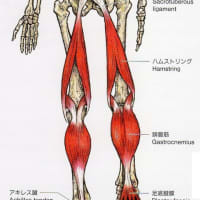
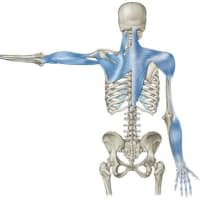
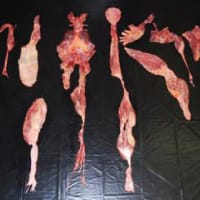
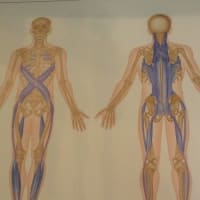
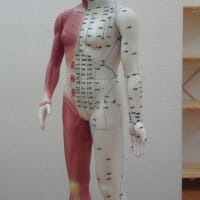
※コメント投稿者のブログIDはブログ作成者のみに通知されます